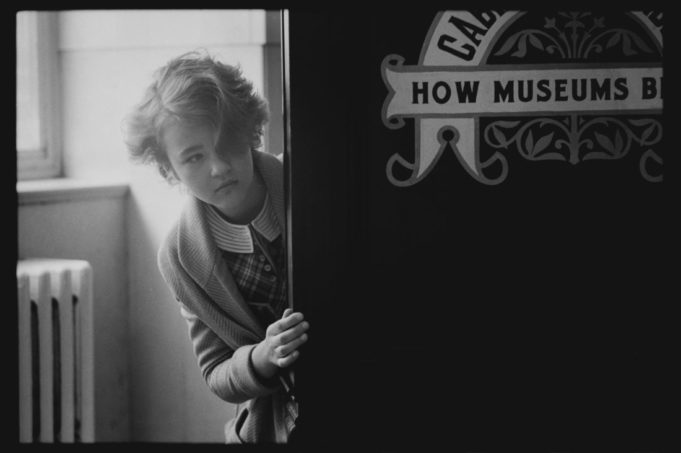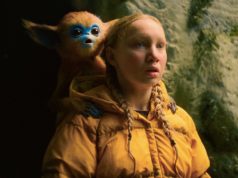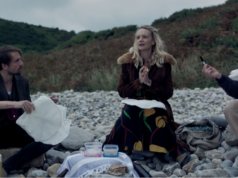Six years ago, Martin Scorsese adapted Brian Selznick’s illustrated novel The Invention of Hugo Cabret into an Oscar-nominated movie called Hugo. Now, the comparably talented Todd Haynes has adapted another illustrated novel by Selznick called Wonderstruck into a movie of the same title. It expands to three Tarrant County theaters this weekend and more next weekend, and confusingly, it does so just ahead of Wonder, a film that has not only a similar title but also shares its child protagonist, astronomy references, and David Bowie’s “Space Oddity.” Don’t mix them up, though, because the gently mystical Wonderstruck is the one you want to see.
The film tells two interlaced stories. One set in 1927 is about Rose Kincaid (Millicent Simmonds), a 13-year-old deaf girl in New Jersey who loves silent films and idolizes one actress in particular (Julianne Moore). When she learns that her favorite movie star will act in a play in New York, she runs away from her abusive father (James Urbaniak) to venture alone to the big city to see her. The other story takes place 50 years later, as 12-year-old Minnesota boy Ben Wilson (Oakes Fegley) first loses his mother (Michelle Williams) to a car accident and then most of his hearing to a lightning strike when he tries to make a phone call during a thunderstorm. His condition doesn’t keep him from running away from the hospital to hop a bus to New York and pursue a lead on who his long-lost father might be. Both Ben and Rose wind up at the American Museum of Natural History, but the deeper connection that they share isn’t revealed until late.
Selznick’s book told Ben’s story in prose and Rose’s story in illustrations, so Haynes makes Rose’s half of the film into a black-and-white silent film and Ben’s half into a sound film in the style of movies from the late 1970s. Haynes’ previous films like Far From Heaven and Carol were ostentatious displays of the director’s craftsmanship. Here, he has a much looser grip on the steering wheel. Perhaps this is because Selznick’s novel is so chockablock with coincidences that Haynes doesn’t want to hammer them home. If so, then it’s a wise move, because the path that leads Rose and Ben together comes off here like a mysterious confluence of encounters rather than an overdetermined series of plot points.
You might expect a director to pull some showoff moves with the silent half of the picture: German Expressionist shadows, irises, title cards in place of dialogue. Haynes can certainly mimic any mode of filmmaking, but he confines the silent-cinema touches to a few isolated in-jokes. Instead, he saves his visual splendors for Ben’s scenes, as cinematographer Ed Lachman revels in the Day-Glo colors of the time period. The whole film is shot through with the kids’ awe at the bustle of the Big Apple, and even the crime-infested, trash-filled New York of the ’70s dazzles Ben with its dissolute grandeur. Haynes skillfully calls up Times Square back when it was a haven for prostitutes and junkies, and does just as tactile a job of evoking the Museum of Natural History during two distinct eras. Most of the exhibits remain the same, but they’re presented in a staid, scholarly manner to Rose and a flashier way to Ben. Despite the Oscar laureates in the cast, the load falls upon these two child actors, who bear up well through long stretches without dialogue. Fegley, who starred in Pete’s Dragon, has the more eye-catching role as the volatile Ben, but we shouldn’t overlook the alertness and loneliness that Simmonds (a newcomer who’s deaf in real life as well) brings to Rose.
There are precious few films made for deaf audiences, even though a whole era of cinema from before 1927 shows how it can be done. More recently, the 2015 Ukrainian crime thriller The Tribe was a notably hard-edged entry in this canon. Wonderstruck is a shining addition to it, but even more than Hugo, it captures Selznick’s dazed awe at the capriciousness with which life brings us the things that matter most to us.
Wonderstruck
Starring Oakes Fegley and Millicent Simmonds. Directed by Todd Haynes. Written by Brian Selznick, based on his own illustrated novel. Rated PG.












